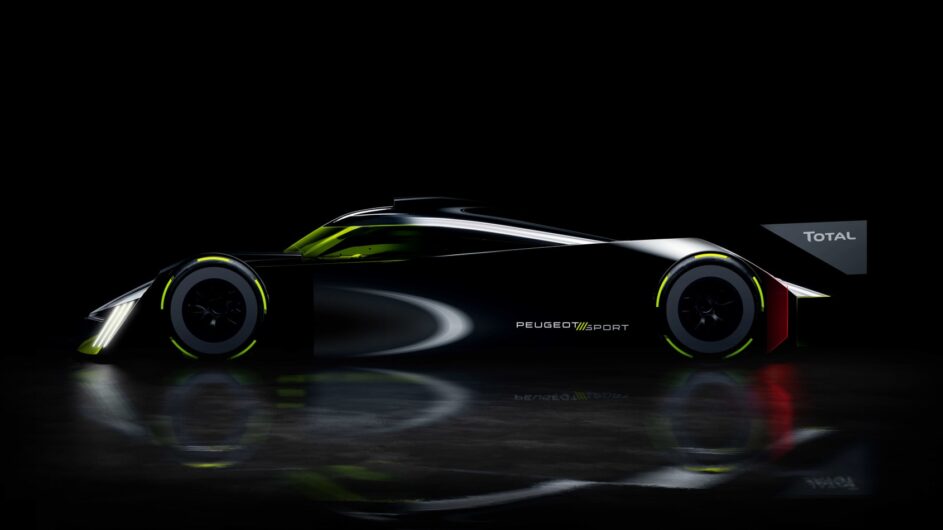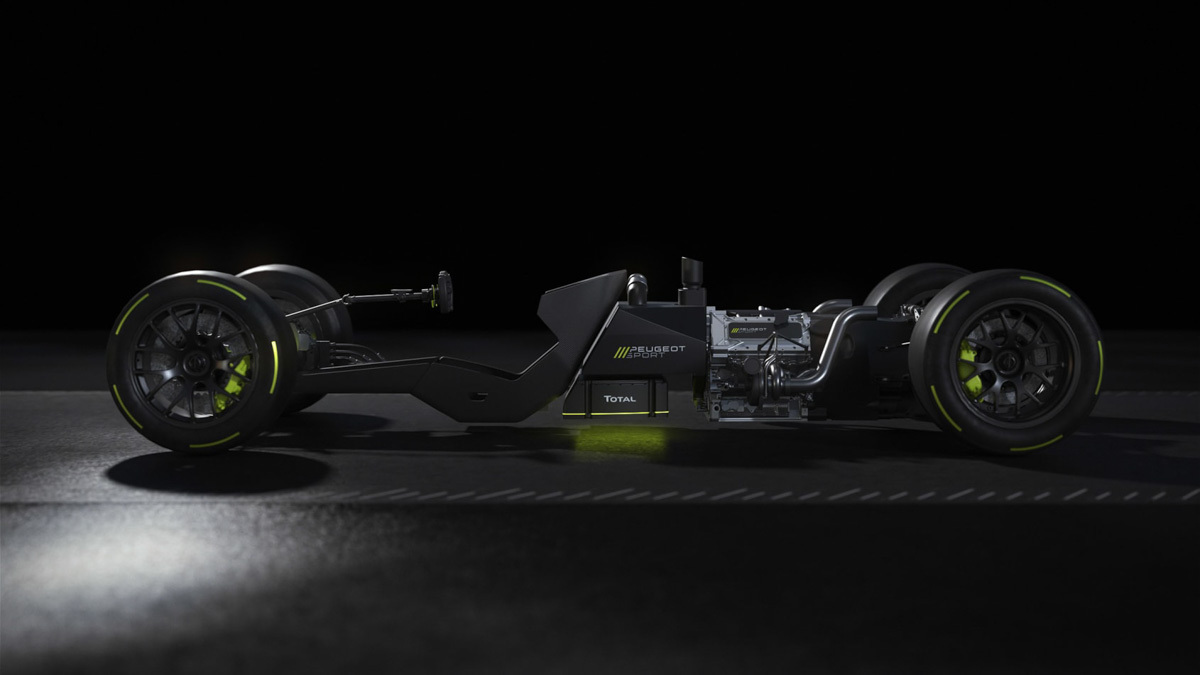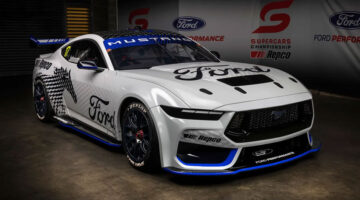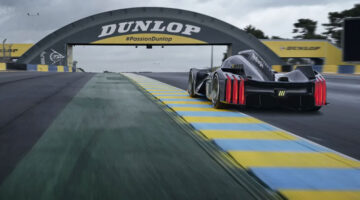Peugeot Sport has developed an all-new all-wheel drive twin-turbo V6 hybrid powertrain for new racer
Peugeot Sport has revealed in-depth details about its forthcoming Le Mans Hypercar class racer, which it has now officially named the Hybrid4 500kW. The new top-tier Le Mans racer will signal Peugeot’s return to the series after a decade-long hiatus, joining Toyota, Scuderia Cameron Glickenhaus and ByKolles.
The Peugeot Hybrid4 500kW’s technical highlights begin with the use of a bespoke 2.6-litre twin-turbo 90-degree V6 petrol engine mounted longitudinally behind the driver in a mid-rear layout. The engine will produce a maximum of 671bhp and power the rear wheels via a seven-speed sequential transmission. The decision to develop this new V6 was drawn from its ideal compromise between power density, packaging and weight, hitting the scales at 165kg. A single-turbocharger layout was initially considered, but failed to hit Peugeot Sport’s centre-of-gravity targets. The engine is purely motorsport derived, with no plans to make it available in a road-going form.
In addition to the internal combustion engine will be the use of a 200kW (268bhp) electric motor mounted on the front axle powering the front wheels, making the Hybrid4 500kW all-wheel drive, as its name, and regulations would suggest. When combined, these two propulsion systems quite dramatically out-perform the peak power limits in the new Hypercar class, but when running in unison will only peak at the allotted 671bhp.
Peugeot Sport will control this by limiting power from the V6 to 405bhp when the electric motor is at maximum attack, and at any one time will actively modulate the petrol engine’s power according to the input of the electric motor. According to Hypercar powertrain rules, the front motor and therefore front wheels, are not allowed to function below 120kph, which is when the petrol engine’s full 671bhp will be in use. As the front-wheels engage, power from the V6 is then modulated to never exceed the combined 671bhp power cap when joined by the electric motor. The same applies once energy from the batteries have been depleted, with the V6 reverting to its full capability.

This complex engine management will be monitored and controlled automatically by the racer’s electronic brain, with telemetry automatically being transmitted to race officials to keep within the rules. The battery pack has been developed in partnership with Peugeot’s historic racing partner Total, who also has worked with the combustion team in development of it’s internals and lubricants.
The brakes will be by-wire, and like F1 and LMP1 utilise both friction and regenerative braking functions – regen levels will be controllable on the fly from the cockpit. The move to hybridisation also allows the brand to bring elements from the track to its new line of road cars. Jean-Philippe Imparato, Peugeot CEO, said: ‘Peugeot Sport is changing its identity and launching its label of electrified high-performance vehicles; Peugeot Sport Engineered with its first 508 model: 360 horsepower, 4-wheel drive and 46g of C02. This endurance program allows us to integrate ourselves fully into the transition of energies.’
Late last year, PSA Motorsport director Jean-Marc Finot said: ‘I am very excited at the prospect of channelling the skills and passion of my team into this project. It is a new challenge and I know our experts will rise to it with another demonstration of their will to win with teams financed by the group’s brands, fuelled by their long experience of top-flight FIA championships and hunger for success.’
This article originally appeared at evo.co.uk
Copyright © evo UK, Dennis Publishing




